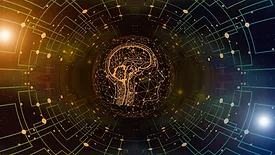Home » artificial intelligence (AI)
Articles Tagged with ''artificial intelligence (AI)''
Elevating healthcare with artificial intelligence
Artificial intelligence-enabled video surveillance is being used to streamline field-level operations and manage healthcare facilities in a cost-effective way, while adding a layer of security and safety.
November 18, 2021
Sign-up to receive top management & result-driven techniques in the industry.
Join over 20,000+ industry leaders who receive our premium content.
SIGN UP TODAY!Copyright ©2026. All Rights Reserved BNP Media.
Design, CMS, Hosting & Web Development :: ePublishing

-(1).webp?height=168&t=1639404922&width=275)








.webp?t=1637075091)

.webp?height=168&t=1635789796&width=275)